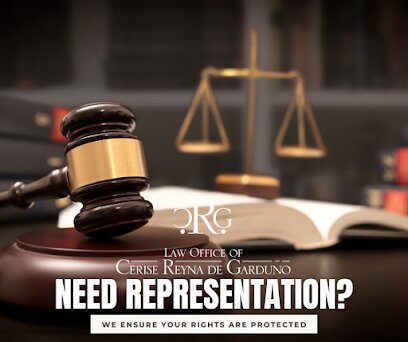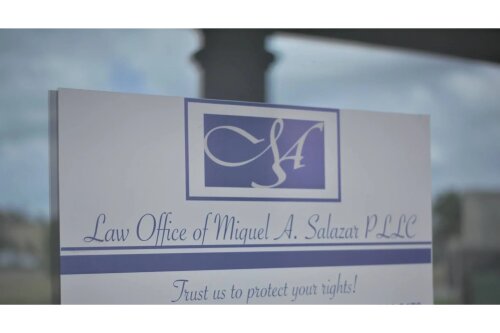Best Premises Liability Lawyers in Brownsville
Share your needs with us, get contacted by law firms.
Free. Takes 2 min.
List of the best lawyers in Brownsville, United States
About Premises Liability Law in Brownsville, United States
Premises liability is the area of law that governs a property owner or occupier's responsibility for injuries that happen on their property. In Brownsville, as elsewhere in Texas, the core idea is straightforward - if someone is injured because the property owner failed to make the premises reasonably safe or to warn of a dangerous condition, the injured person may have a legal claim. Common premises liability cases include slip-and-fall incidents, inadequate security that leads to assault, dog bites, pool or playground accidents, and injuries caused by structural defects or poor maintenance.
Claims are evaluated under traditional negligence principles - duty, breach, causation, and damages - with specific Texas rules about notice, comparative fault, and special procedures when a government-owned property is involved. Local agencies, property managers, landlords, business owners, and homeowners all can face premises liability claims depending on who controlled the property and the nature of the hazard.
Why You May Need a Lawyer
Premises liability cases often involve complex factual and legal issues. A lawyer can help you in many ways:
- Assess whether the property owner owed you a duty of care based on your status at the time of injury - for example, whether you were an invitee, licensee, or trespasser.
- Gather and preserve evidence that frequently disappears quickly - photos, video surveillance, maintenance records, incident reports, witness statements, and physical evidence.
- Obtain medical documentation and arrange for expert testimony if needed to prove causation and future medical needs.
- Advise you on interactions with insurance companies and limit harmful statements that could reduce your recovery.
- Calculate all categories of damages properly - medical bills, lost wages, pain and suffering, and potential future care or lost earning capacity.
- Handle special procedures and deadlines that apply to claims against government entities or public property.
- Negotiate settlements or pursue litigation if necessary, and protect your rights under Texas law, including comparative fault rules that can reduce or bar recovery.
Local Laws Overview
Key aspects of Texas and local law relevant to Brownsville premises liability include:
- Duty and visitor status - Texas law evaluates the property owner s duty based on whether the injured person was an invitee, licensee, or trespasser. Invitees generally receive the highest protection - property owners must inspect, warn, and remedy dangerous conditions they know or should know about.
- Notice requirement - To recover, plaintiffs usually must show the property owner had actual knowledge of the dangerous condition or that the condition existed long enough that the owner should have discovered it - called constructive notice.
- Statute of limitations - For most personal injury claims in Texas, you have two years from the date of injury to file a lawsuit. Wrongful-death suits also generally must be filed within two years. These deadlines are strictly enforced.
- Comparative fault - Texas uses a modified comparative fault rule. If you are partially at fault, your recovery is reduced by your percentage of fault. If you are more than 50 percent at fault, you may be barred from recovering any damages.
- Government property and sovereign immunity - Claims against the City of Brownsville, Cameron County, school districts, and other government entities are governed by the Texas Tort Claims Act and other statutes. These claims often require a written notice of claim within a short period - commonly six months from the date of injury - and may be subject to procedural limits and caps. A separate set of rules applies to state agencies.
- Landlord-tenant rules - Landlords have specific duties under Texas landlord-tenant law and local housing codes to maintain common areas and address known hazards. Liability can depend on the lease terms, who had control of the area, and local code enforcement records.
- Local ordinances - Brownsville city codes and Cameron County regulations address issues such as pool fencing, property maintenance, and animal control. Violations can be evidence of negligence, but local rules do not automatically create liability without connecting the violation to the injury.
Frequently Asked Questions
What exactly is premises liability?
Premises liability is the legal theory that a property owner or occupier can be held responsible when someone is injured on their property due to unsafe conditions, lack of maintenance, inadequate security, or failure to warn of hazards. The injured person must usually prove the owner had a duty, breached that duty, and that the breach caused the injury and damages.
How long do I have to file a claim after an injury in Brownsville?
For most personal injury and wrongful-death claims in Texas, you have two years from the date of the injury to file a lawsuit. If the property is owned by a government entity, you may need to give written notice much sooner - commonly within six months. These deadlines can be strict, so act promptly.
What types of accidents count as premises liability?
Common examples include slip-and-fall or trip-and-fall accidents, injuries from falling objects, inadequate building maintenance, elevator or escalator accidents, pool drownings, dog bites, inadequate security that results in assault, and injuries from defective stairs or handrails.
Do I have a case if I was trespassing when I was injured?
Trespassers generally have a lower level of protection, and property owners owe minimal duties to undiscovered trespassers. There are exceptions for child trespassers under the attractive nuisance doctrine and for situations where the owner willfully or intentionally caused harm. Each fact pattern matters, so consult an attorney to evaluate your situation.
What if the property is owned by the City of Brownsville or another government body?
Claims against government entities are more complicated. You likely must give timely written notice of the claim to the governmental unit - often within six months of the injury - and follow special procedural rules. Monetary recovery may be limited or barred in some circumstances. Contact a lawyer immediately if a government-owned property is involved.
How does Texas handle shared fault between the injured person and the property owner?
Texas applies a modified comparative fault system. If you are partly at fault, your damages are reduced by your percentage of fault. If you are found more than 50 percent responsible for the incident, you generally cannot recover damages.
What kinds of damages can I recover in a premises liability case?
Recoverable damages typically include past and future medical expenses, lost wages, loss of earning capacity, physical pain and suffering, mental anguish, and in rare cases punitive damages for grossly negligent or intentional conduct. The exact damages depend on the severity and permanency of the injury and the facts of the case.
How should I preserve evidence after an injury?
Take photos of the scene, hazards, and your injuries as soon as possible. Keep clothing and shoes you were wearing. Get contact information from witnesses, request incident reports from the property owner or manager, and seek surveillance footage quickly because it is often overwritten. Keep copies of medical records and bills.
Should I speak with the property owner s insurer without a lawyer?
You should be cautious. Insurance adjusters may ask for recorded statements or quick signings of documents. These can limit your recovery later. It is usually wise to consult with a premises liability attorney before giving recorded statements or accepting settlements, especially if your injuries are serious or there is a dispute about fault.
How much will a premises liability lawyer cost in Brownsville?
Many personal injury lawyers handle premises liability cases on a contingency-fee basis, meaning they are paid a percentage of any settlement or verdict and you pay nothing upfront. Fee structures and percentages vary, so discuss fees and costs at your first consultation. Also ask about how litigation expenses are handled.
Additional Resources
Helpful resources for people involved in premises liability matters in Brownsville include:
- Texas statutes and codes that govern tort and property law, including the Texas Civil Practice and Remedies Code and the Texas Property Code.
- The Texas Tort Claims Act rules for claims against governmental entities.
- Brownsville city code and Cameron County ordinances for local property and safety regulations.
- Brownsville Police Department and local hospitals for incident and medical reporting.
- Cameron County Clerk for filing records and court information.
- Legal aid and referral services such as Texas RioGrande Legal Aid, and the Brownsville or Cameron County bar associations for attorney referrals and low-cost assistance.
- Texas Bar Association resources on finding a lawyer and understanding personal injury practice in Texas.
Next Steps
If you have been injured on someone else s property in Brownsville, follow these steps to protect your rights:
- Seek medical attention immediately. Your health is the top priority, and medical records document your injuries.
- Report the incident to the property owner, manager, or operator and request an incident report. For government property, follow the required notice procedures.
- Photograph the hazard and the overall scene, preserve clothing, shoes, and any other physical evidence, and request video surveillance promptly.
- Collect names and contact information of witnesses and keep a written record of what happened while your memory is fresh.
- Keep all medical bills, receipts, and records of lost income or other expenses related to the injury.
- Avoid signing releases or giving recorded statements to insurers without consulting an attorney.
- Consult a premises liability lawyer in Brownsville to evaluate the strength of your claim, explain applicable deadlines and notice requirements, and help you pursue compensation if appropriate.
Talking to an experienced local attorney early will help preserve evidence, meet strict deadlines, and increase the chance of a fair result. If you are unsure where to start, contact a local bar association or legal aid organization for referrals and an initial consultation.
Lawzana helps you find the best lawyers and law firms in Brownsville through a curated and pre-screened list of qualified legal professionals. Our platform offers rankings and detailed profiles of attorneys and law firms, allowing you to compare based on practice areas, including Premises Liability, experience, and client feedback.
Each profile includes a description of the firm's areas of practice, client reviews, team members and partners, year of establishment, spoken languages, office locations, contact information, social media presence, and any published articles or resources. Most firms on our platform speak English and are experienced in both local and international legal matters.
Get a quote from top-rated law firms in Brownsville, United States — quickly, securely, and without unnecessary hassle.
Disclaimer:
The information provided on this page is for general informational purposes only and does not constitute legal advice. While we strive to ensure the accuracy and relevance of the content, legal information may change over time, and interpretations of the law can vary. You should always consult with a qualified legal professional for advice specific to your situation.
We disclaim all liability for actions taken or not taken based on the content of this page. If you believe any information is incorrect or outdated, please contact us, and we will review and update it where appropriate.











